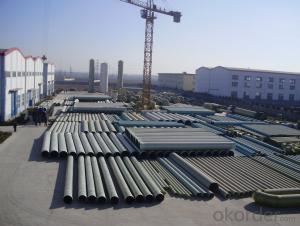When it comes to boatbuilding, there’s one material that stands out for its versatility, durability, and strength – Fiberglass Cloth. This material has revolutionized the boatbuilding industry, offering boat enthusiasts a reliable and long-lasting option for their watercrafts. In this article, we’ll explore the importance of fiberglass cloth in boatbuilding, its benefits, and why it’s the go-to choice for many boat builders and owners.
A Brief History of Fiberglass Cloth in Boatbuilding
Fiberglass cloth, also known as glass fabric, was first introduced in the boatbuilding industry in the 1950s. It quickly gained popularity due to its lightweight and strong properties. Over the years, fiberglass has become the preferred material for many boat builders, thanks to its numerous advantages over traditional materials like wood and steel.
The Versatility of Fiberglass Cloth
One of the most significant advantages of fiberglass cloth is its versatility. It can be easily molded into various shapes and sizes, making it perfect for building boats of different designs and styles. Whether you’re looking to build a small fishing boat or a large yacht, fiberglass cloth can be tailored to fit your needs.
Durability and Longevity
Fiberglass cloth is known for its durability and longevity. It can withstand harsh weather conditions, making it an ideal choice for boats that will be exposed to the elements. Unlike wood, which can rot and decay over time, fiberglass cloth remains strong and intact, ensuring the longevity of your boat.
Corrosion Resistance
Corrosion resistance is another significant benefit of using fiberglass cloth in boatbuilding. It doesn’t rust or corrode, unlike metal materials. This means that boat owners can save on maintenance costs and enjoy their boats for longer periods without worrying about the effects of corrosion.
Easy Maintenance
Fiberglass boats are also easy to maintain. They don’t require the same level of care as wooden boats, which often need to be painted and sealed regularly to protect them from water damage. With fiberglass, a simple wash with soap and water is usually enough to keep your boat looking clean and well-maintained.
Cost-Effectiveness
Building a boat with fiberglass cloth is cost-effective in the long run. While the initial investment may be higher than traditional materials, the low maintenance costs and longevity of fiberglass boats make it a wise investment for boat owners.
Environmental Impact
Fiberglass cloth is also environmentally friendly. It doesn’t contain harmful chemicals or toxins, making it a safe choice for boat owners and the marine ecosystem. Additionally, fiberglass boats can be recycled, reducing their impact on the environment.
Customization Options
With fiberglass cloth, the possibilities for customization are endless. Boat builders can create unique designs and features that reflect their personal style and preferences. From the color to the layout, fiberglass allows for a high level of personalization.
Safety Features
Fiberglass boats are also known for their safety features. They are non-conductive, which means they don’t conduct electricity. This is particularly important for boat owners who plan to use their boats in areas with a risk of electrical storms or near power lines.
Innovations in Fiberglass Technology
Over the years, there have been numerous innovations in fiberglass technology, making it an even more attractive option for boatbuilding. Advances in manufacturing techniques have allowed for the production of stronger and lighter fiberglass cloth, further enhancing its performance and appeal.
The Future of Fiberglass Cloth in Boatbuilding
As the boatbuilding industry continues to evolve, it’s clear that fiberglass cloth will remain a prominent material. Its unique combination of strength, durability, and versatility makes it an ideal choice for both commercial and recreational boatbuilding.
In conclusion, fiberglass cloth is an essential material in boatbuilding, offering numerous benefits that make it the preferred choice for many boat builders and owners. From its durability and corrosion resistance to its cost-effectiveness and customization options, fiberglass cloth has proven to be a reliable and long-lasting material for creating boats that can withstand the test of time.

